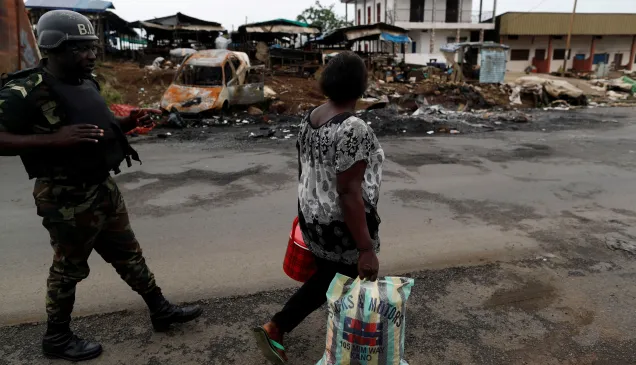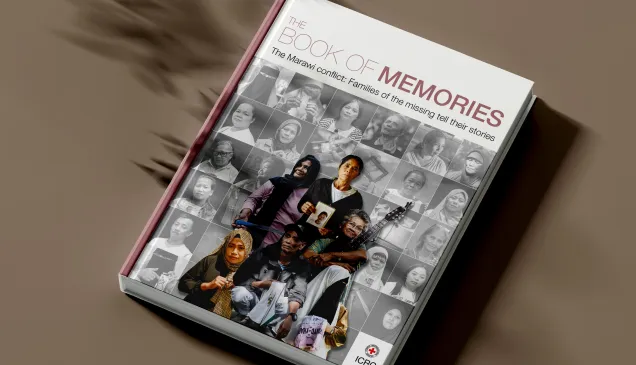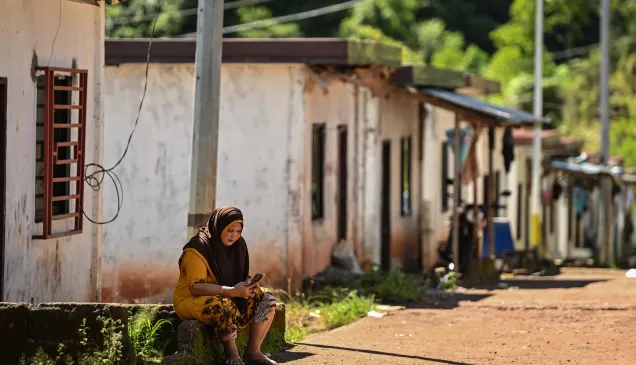A new lease on life: How a non-profit organization helped a mother regain her footing
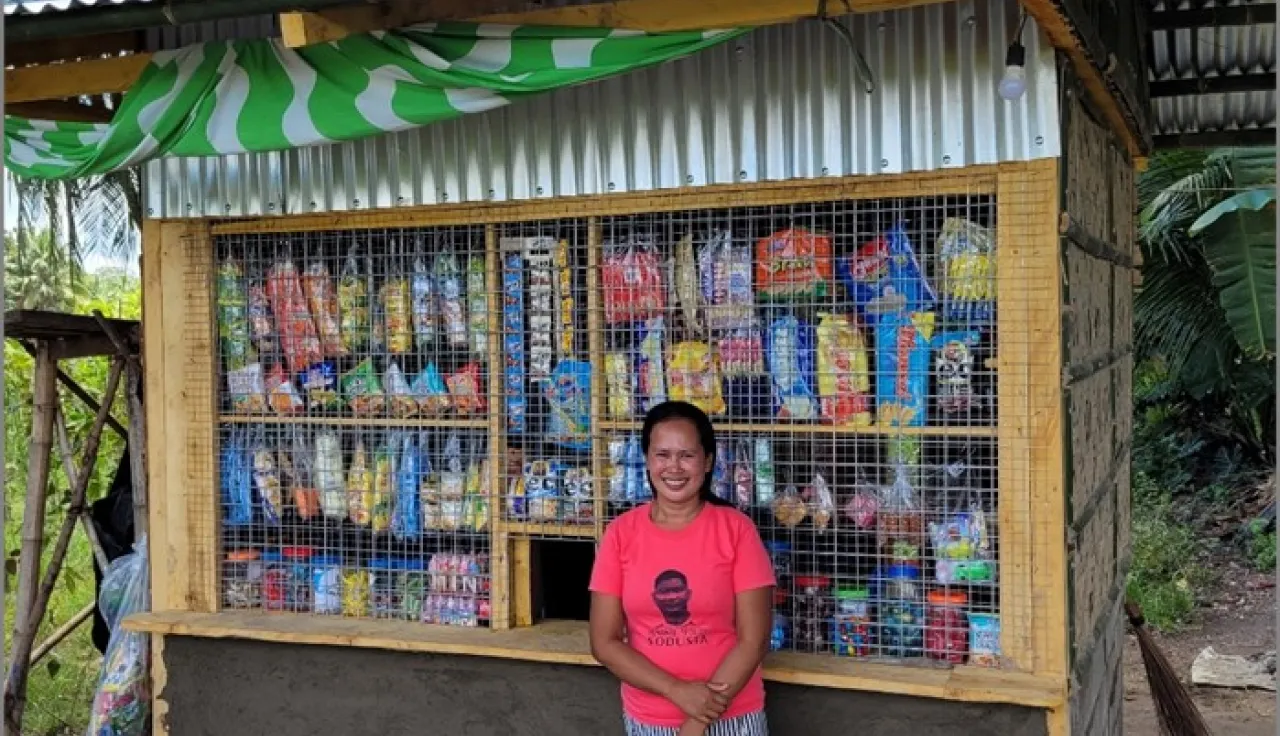
Fifteen years ago, Josie Concepcion was walking with her son near a market in Sultan Kudarat when she heard a sudden, massive explosion. Chaos and confusion ensued. In a few minutes, she heard sirens blaring and people screaming for help.
Shaken, Josie checked on her son, who was unscathed save for a minor wound. She was not as fortunate: doctors later said the explosion left extensive trauma on her left leg. It was badly fractured.
The 40-year-old laundrywoman went through a series of surgeries to restore the full use of her left leg. Despite the treatment, her leg was still badly fractured, and couldn't heal properly. She walked with a limp. It was in the hospital that she met a volunteer of the Philippine Red Cross who gave her crutches. She will have to use them, she was told.
"I cried and screamed in fury. I felt rage; I threw them away. I refused to accept that I will have to rely on them to be able to walk. I asked myself endlessly why it had to happen to me," Josie says.
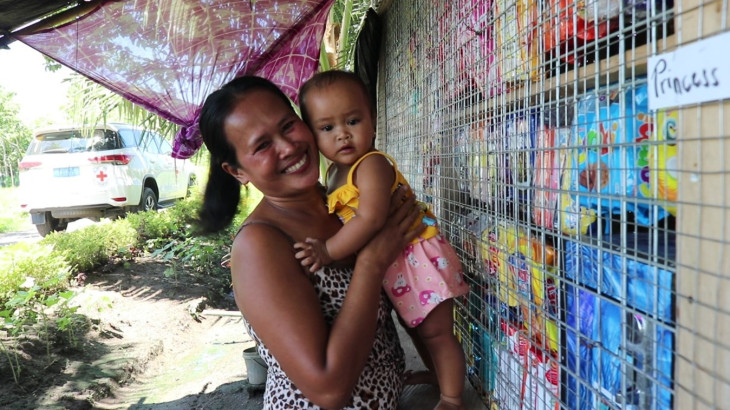
With positivity, Josie and her granddaughter spend quality time in front of her sari-sari store in Lutayan, Sultan Kudarat. Photo: B. Sultan/ICRC
Her struggle
Life stopped for Josie. She had to endure negative emotions daily –denial, anger, and depression. As the years passed, the changes in her life became unbearable. She felt powerless, as if she were a useless mother and a burden to her family.
Her emotional struggle was exacerbated by the ridicule she received from acquaintances and strangers whenever she leaves her home.
"When I walk outside or attend Mass, everyone would look at me. People would say, 'Here comes the cripple.' It was painful," Josie says.
"I wanted to escape. I wanted to end my suffering. But in a fleeting moment, I thought of my family. 'What will happen to my children? My husband?'" she adds.
Josie's husband was her rock, her biggest supporter. Never for a moment did Josie feel that her husband's affection for her diminish. She never feared that he would abandon her.
"My husband comforted me. He gave me strength. He encouraged me. He said I was not alone. I should be grateful that I am still alive. I can do it. He assured me that he would not leave me because of my disability," Josie says.
Thanks to her husband, Josie became steadfast in her faith. She soldiered on despite the struggles. She kept going to church despite the gossipmongers. She prayed for a happy, productive life.
Renewed hope
I want to go up on the stage and proudly hang a medal on my son. I want to be there for him now that I can walk without the help of crutches.
In 2018, her prayers were answered. Josie accompanied her husband during a visit to a doctor when a provincial social worker approached her and asked: "Do you want to walk without crutches?" The social worker mentioned that there is a program at Davao Jubilee Foundation (DJF) which helps people who were victims of armed conflict.
The DJF program, sponsored by the International Committee of the Red Cross (ICRC), provides custom-fabricated mobility devices to people who have been affected by armed conflicts. The ICRC provides partial funding for DJF's physical rehabilitation services as well as in-kind donations such as food and transportation for beneficiaries.
Josie was told that if she were to use an orthoprosthesis she would no longer have to use crutches. At first, she was skeptical. But she kept thinking about DJF and the social worker.
"I was tired of using crutches. I decided I should try. I called her, she asked me to visit her office, then we visited DJF's office afterward," she says.
Healthcare professionals at DJF noticed that her legs were not of the same length, which explained why she had a hard time walking. When Josie was fitted with the orthoprosthesis, she sobbed uncontrollably. This was her chance to live a better life.
After learning how to walk with her mobility device, Josie's life vastly improved.
"It seemed my life was extended. I didn't think that I could still walk again as I used to," she adds.
With the orthoprosthesis, Josie can walk more freely, move comfortably, and do household chores independently. She became more confident. Her better mobility encouraged her to open a small corner (sari-sari) store, a business that she started through the ICRC's Micro Economic Initiatives' project. The program helps conflict-affected Mindanawons start or revive their own businesses by providing productive grants.
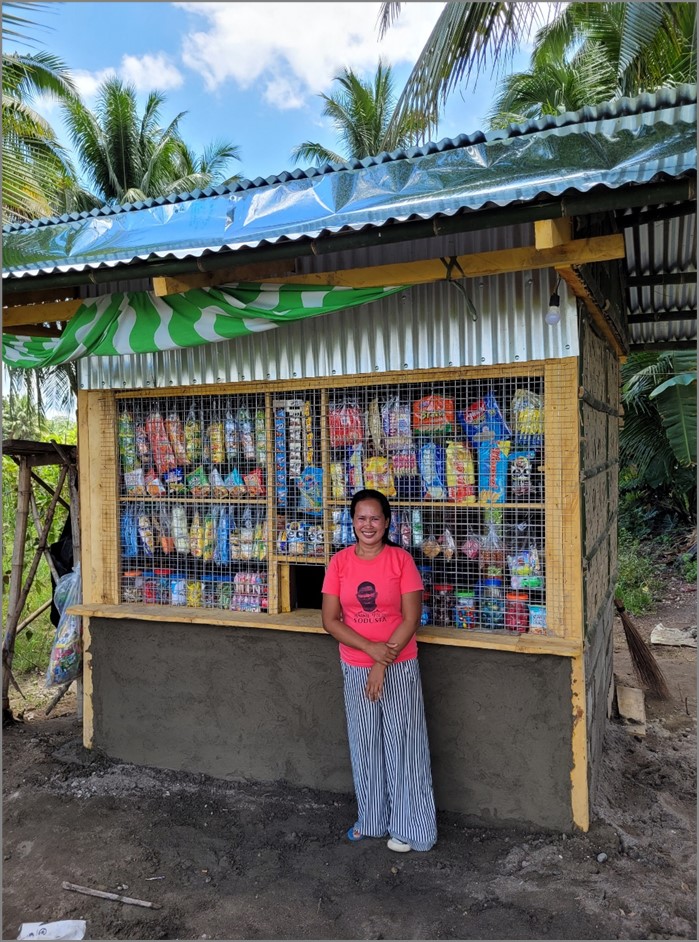
Josie proudly standing in front of her newly constructed store Photo: I. Ali/ICRC
"With the sari-sari store, I am occupied. I can help my family. We even used the income from the store for the baptism of my youngest child and grandchild in February. We couldn't have done it with just my husband's salary," she says.
There was no competition when she first opened her store. But after four months, three of her neighbors opened their own stores. She had to step up.
"My strategy now is to encourage my customers to stay for small talk in my store. The longer they stay, the more food they buy and eat. It is good to catch up with them while they have a snack. And I earn more," Josie said.
And Josie is not running out of ideas. Far from it. Her store is now offering WiFi service to customers for a fee. She is also planning to sell gasoline to neighbors.
Josie is relentless because it's her family that keeps her going.
"I used to think I was useless, hopeless," she says. "I didn't know what to do. Then I realized, that should not be that way. I should strive hard for my children. There are people who love me unconditionally."
She is grateful for the help that she received from DJF and ICRC. And now, she is ready to pay it forward—she has introduced two people to DJF, where they received much-needed physical rehabilitation.
"I saw them using crutches and I know how hard it was. I even went with one of them to DJF. I realized it is not enough that I am now able to walk. I should also do something to help others," she says.
No longer ashamed
Her life has become better, but Josie has one dream left: to see her children graduate from school.
"I have nothing to leave to them but their education. I encouraged my son, who is a consistent honor student, to keep up his good work. It is my dream to go up on stage for his graduation. Before, every time he received an award, I refused to go on stage because of my crutches. Now, I want to go on stage without it," shares Josie.
"I have found my confidence. I am no longer ashamed."

